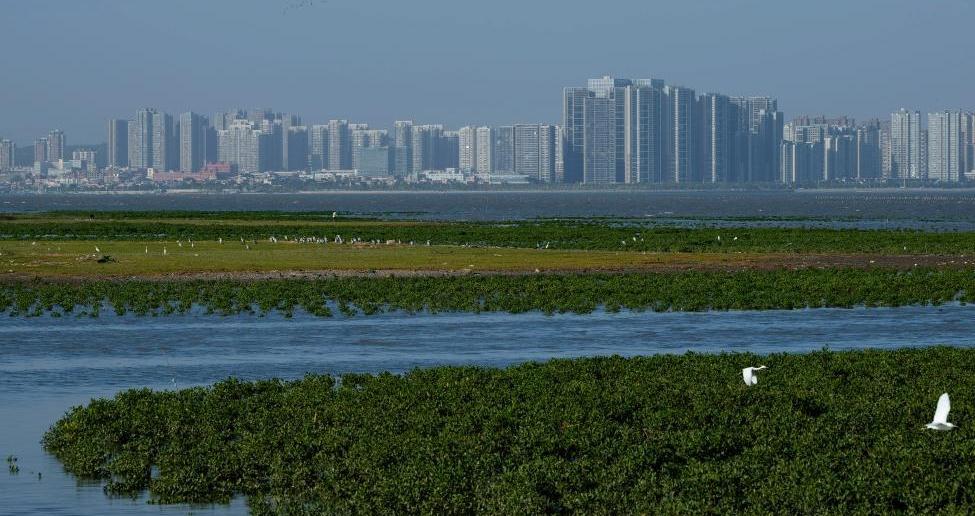Migratory birds seen in wetlands in Fujian, SE China
Xinhua, November 20, 2023 Adjust font size:
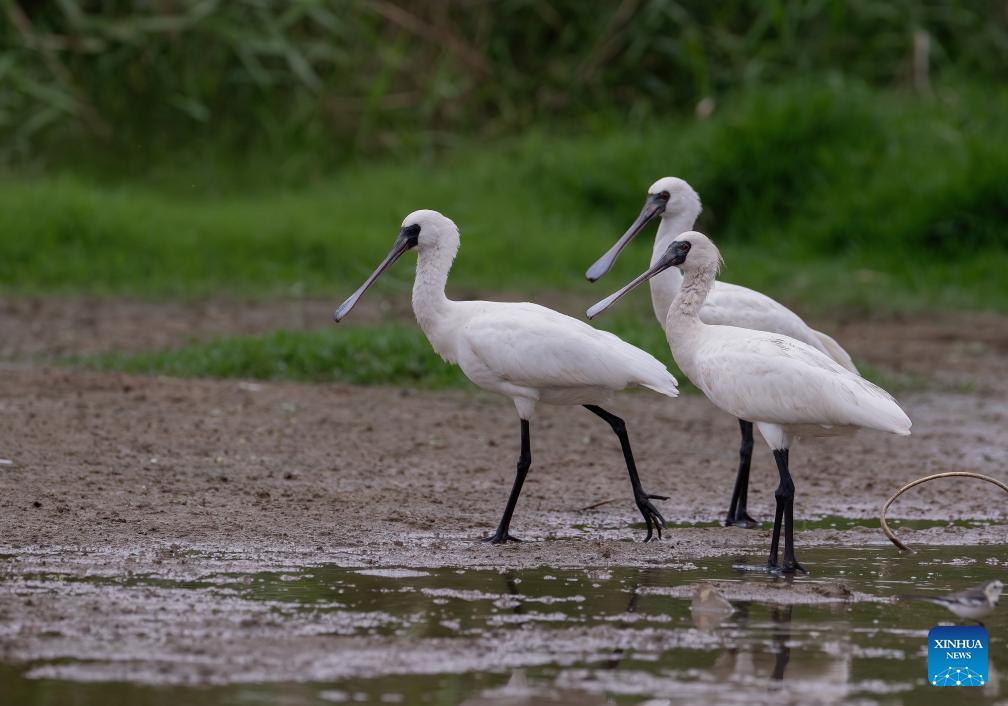
Black-faced spoonbills are pictured in the Minjiang River estuary wetland in southeast China's Fujian Province, Nov. 15, 2023. Flocks of migratory birds have made stopovers in Fuzhou, Quanzhou and other areas in Fujian Province, as they make their way toward the south to get through the winter. Among them, the number of rare birds, such as black-faced spoonbills and spoon-billed sandpipers which are under first-class national protection in China, continues to increase.
In recent years, Fujian Province has launched a series of ecological rehabilitation projects to strengthen efforts in wetlands protection, riverway management, marine litter treatment and forest vegetation restoration. With the continuous improvement in ecological environment, Fujian Province attracts a large number of migratory birds to come here for wintering and breeding every year. (Xinhua/Wei Peiquan)
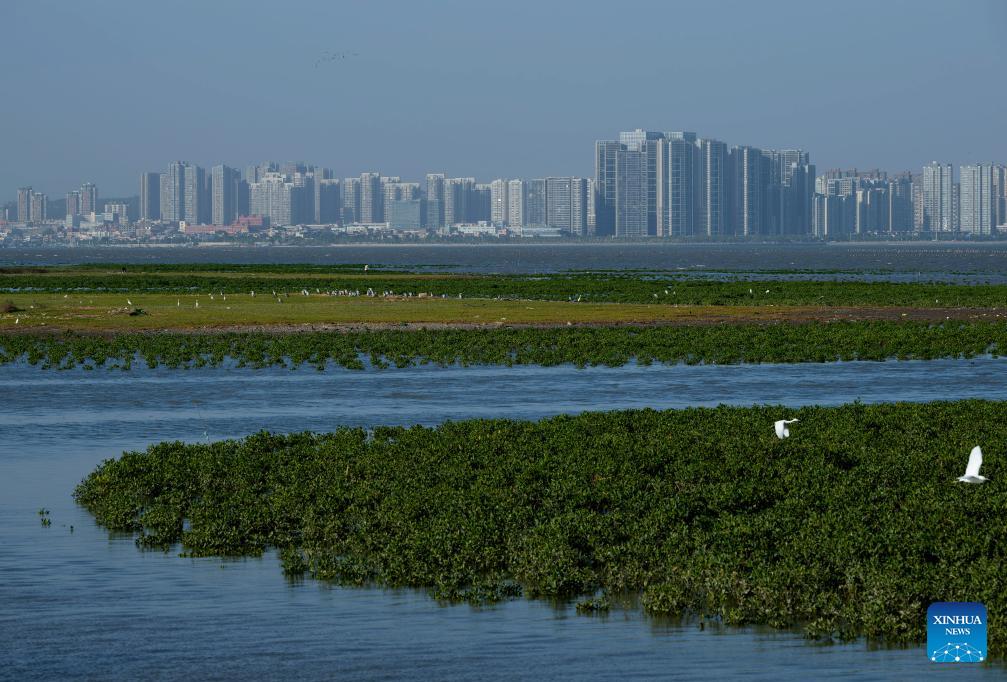
This photo taken on Nov. 18, 2023 shows the Quanzhou Bay estuary wetland in southeast China's Fujian Province. Flocks of migratory birds have made stopovers in Fuzhou, Quanzhou and other areas in Fujian Province, as they make their way toward the south to get through the winter. Among them, the number of rare birds, such as black-faced spoonbills and spoon-billed sandpipers which are under first-class national protection in China, continues to increase.
In recent years, Fujian Province has launched a series of ecological rehabilitation projects to strengthen efforts in wetlands protection, riverway management, marine litter treatment and forest vegetation restoration. With the continuous improvement in ecological environment, Fujian Province attracts a large number of migratory birds to come here for wintering and breeding every year. (Xinhua/Wei Peiquan)
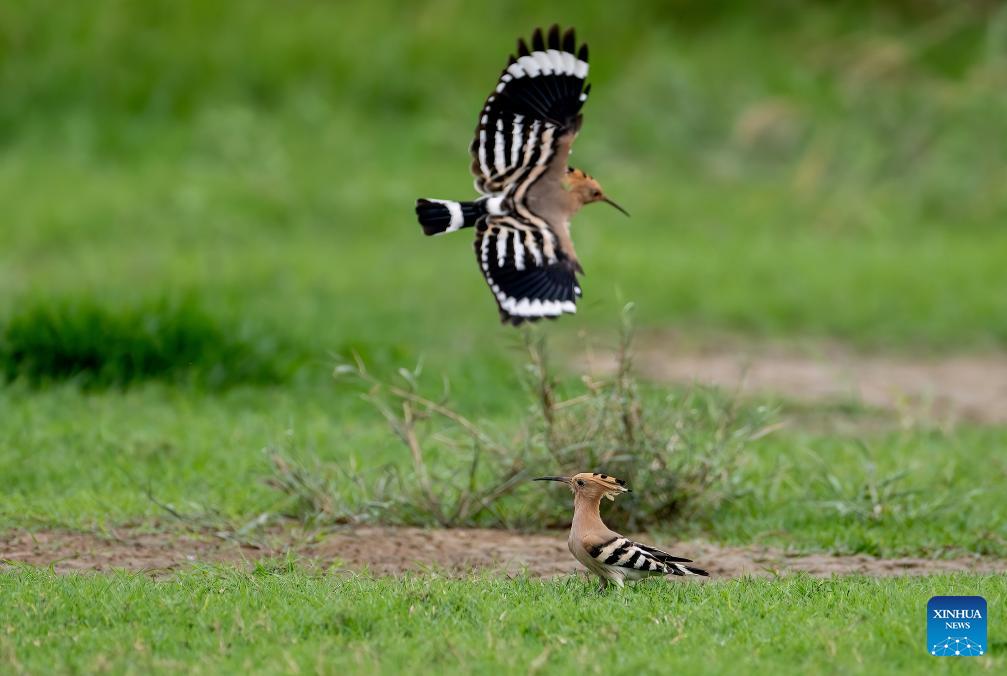
Hoopoes are pictured in the Minjiang River estuary wetland in southeast China's Fujian Province, Nov. 15, 2023. Flocks of migratory birds have made stopovers in Fuzhou, Quanzhou and other areas in Fujian Province, as they make their way toward the south to get through the winter. Among them, the number of rare birds, such as black-faced spoonbills and spoon-billed sandpipers which are under first-class national protection in China, continues to increase.
In recent years, Fujian Province has launched a series of ecological rehabilitation projects to strengthen efforts in wetlands protection, riverway management, marine litter treatment and forest vegetation restoration. With the continuous improvement in ecological environment, Fujian Province attracts a large number of migratory birds to come here for wintering and breeding every year. (Xinhua/Wei Peiquan)
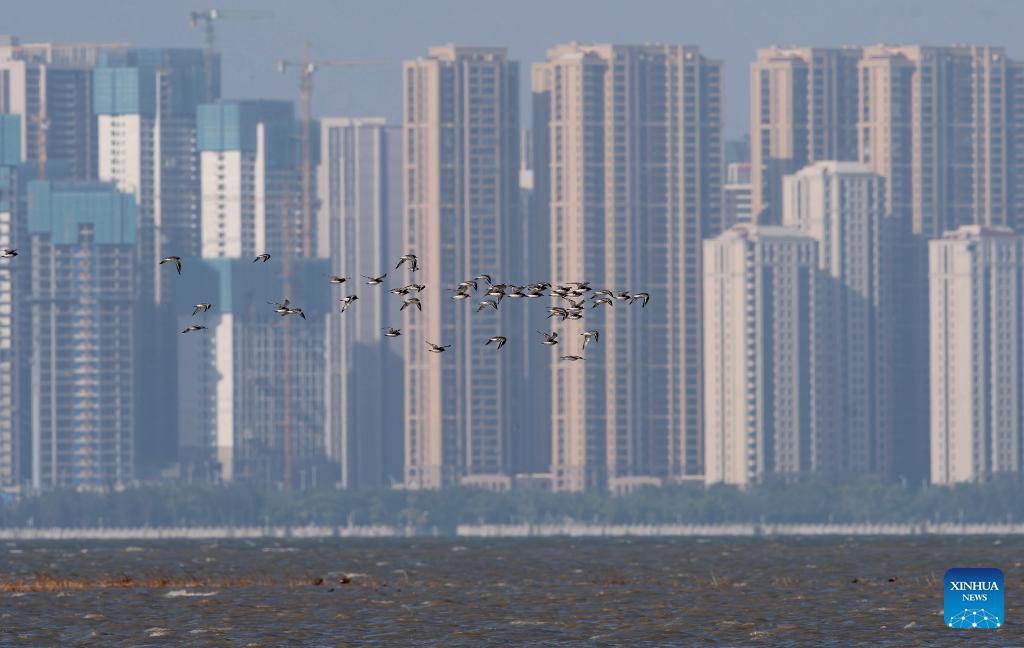
Birds fly over the Quanzhou Bay estuary wetland in southeast China's Fujian Province, Nov. 18, 2023. Flocks of migratory birds have made stopovers in Fuzhou, Quanzhou and other areas in Fujian Province, as they make their way toward the south to get through the winter. Among them, the number of rare birds, such as black-faced spoonbills and spoon-billed sandpipers which are under first-class national protection in China, continues to increase.
In recent years, Fujian Province has launched a series of ecological rehabilitation projects to strengthen efforts in wetlands protection, riverway management, marine litter treatment and forest vegetation restoration. With the continuous improvement in ecological environment, Fujian Province attracts a large number of migratory birds to come here for wintering and breeding every year. (Xinhua/Wei Peiquan)
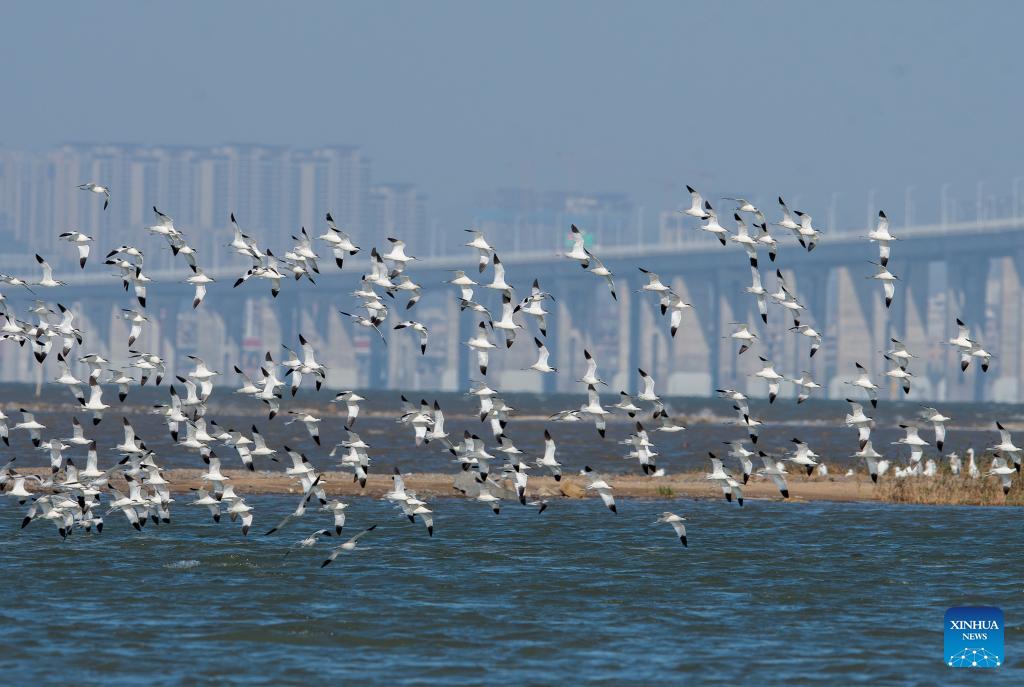
Avocets fly in the Quanzhou Bay estuary wetland in southeast China's Fujian Province, Nov. 18, 2023. Flocks of migratory birds have made stopovers in Fuzhou, Quanzhou and other areas in Fujian Province, as they make their way toward the south to get through the winter. Among them, the number of rare birds, such as black-faced spoonbills and spoon-billed sandpipers which are under first-class national protection in China, continues to increase.
In recent years, Fujian Province has launched a series of ecological rehabilitation projects to strengthen efforts in wetlands protection, riverway management, marine litter treatment and forest vegetation restoration. With the continuous improvement in ecological environment, Fujian Province attracts a large number of migratory birds to come here for wintering and breeding every year. (Xinhua/Wei Peiquan)
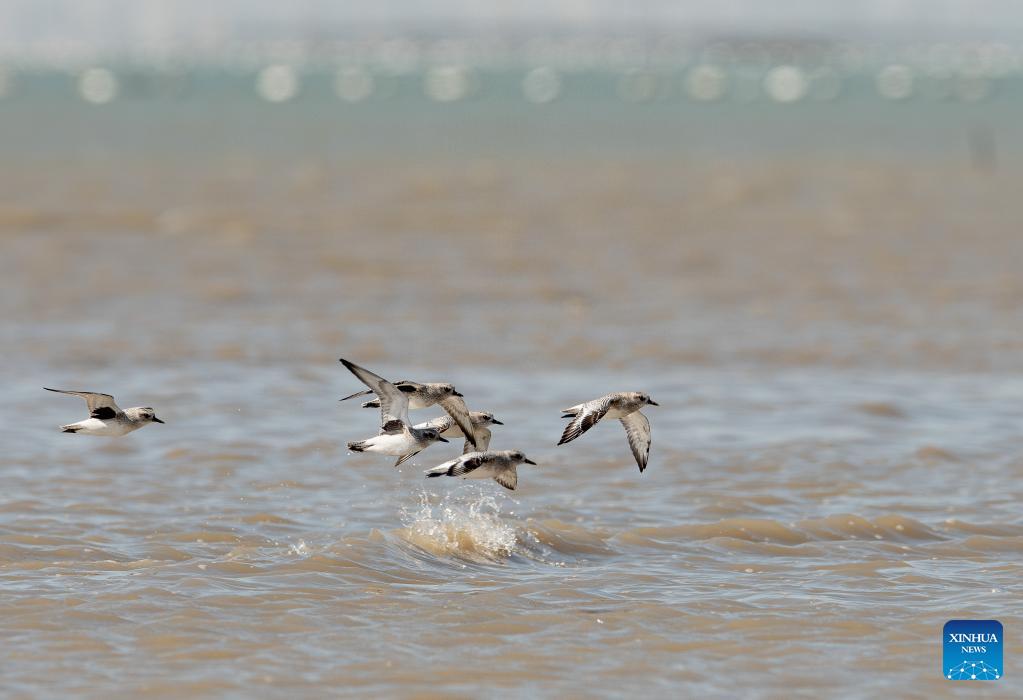
Birds fly in the Quanzhou Bay estuary wetland in southeast China's Fujian Province, Nov. 18, 2023. Flocks of migratory birds have made stopovers in Fuzhou, Quanzhou and other areas in Fujian Province, as they make their way toward the south to get through the winter. Among them, the number of rare birds, such as black-faced spoonbills and spoon-billed sandpipers which are under first-class national protection in China, continues to increase.
In recent years, Fujian Province has launched a series of ecological rehabilitation projects to strengthen efforts in wetlands protection, riverway management, marine litter treatment and forest vegetation restoration. With the continuous improvement in ecological environment, Fujian Province attracts a large number of migratory birds to come here for wintering and breeding every year. (Xinhua/Wei Peiquan)
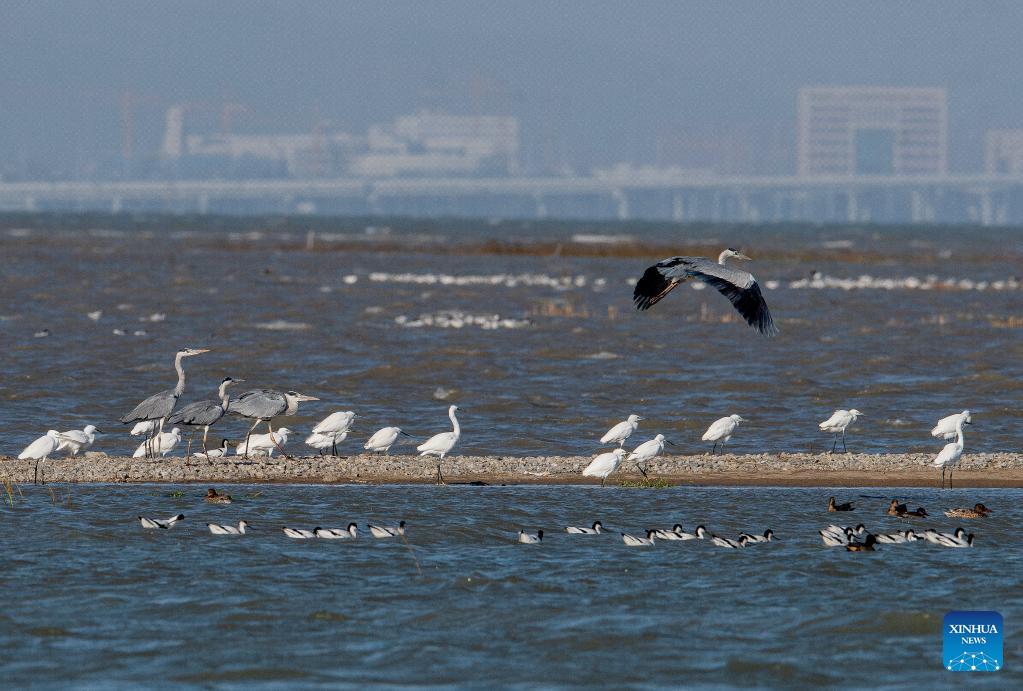
Water birds are pictured in the Quanzhou Bay estuary wetland in southeast China's Fujian Province, Nov. 18, 2023. Flocks of migratory birds have made stopovers in Fuzhou, Quanzhou and other areas in Fujian Province, as they make their way toward the south to get through the winter. Among them, the number of rare birds, such as black-faced spoonbills and spoon-billed sandpipers which are under first-class national protection in China, continues to increase.
In recent years, Fujian Province has launched a series of ecological rehabilitation projects to strengthen efforts in wetlands protection, riverway management, marine litter treatment and forest vegetation restoration. With the continuous improvement in ecological environment, Fujian Province attracts a large number of migratory birds to come here for wintering and breeding every year. (Xinhua/Wei Peiquan)
